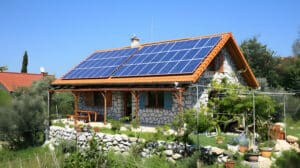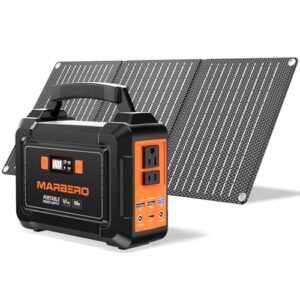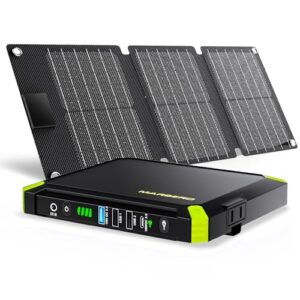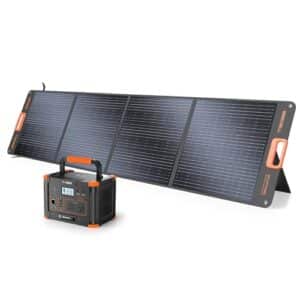Solar generator vs. regular generator: Differences?
Key Takeaways
- Solar generators rely solely on sunlight, making them a clean and renewable energy solution.
- Solar generators are quieter compared to regular generators, making them ideal for noise-sensitive environments.
- Solar generators have lower operating costs and minimal maintenance requirements, providing long-term cost savings.
When it comes to power generation, there are various options available, including solar generators and regular generators. Both have their advantages and disadvantages, and understanding the differences between them can help you make an informed decision. So, let’s explore the key differences between solar generators and regular generators.
Advantages of Solar Generators
Solar generators have gained popularity in recent years due to their numerous advantages:
- Reliance on Sunlight: Solar generators do not require an accessory fuel source and rely solely on sunlight. This makes them an excellent choice for those who want a clean and renewable energy solution.
- Quieter Operation: Compared to regular generators, solar generators are much quieter. This is particularly beneficial for situations where noise pollution is a concern, such as in residential areas or during camping trips.
- Low Maintenance: Solar generators are almost maintenance-free. Once installed, they require minimal attention, saving you both time and effort.
- Environmentally Friendly: Solar generators do not produce carbon emissions, making them an environmentally friendly power generation option. They help reduce greenhouse gas emissions and contribute to a cleaner and greener future.
- Lower Operating Costs: While solar generators may have a higher upfront cost, they have lower operating costs in the long run. Since they rely on sunlight, the fuel source is free, reducing your dependence on expensive fuel sources.
- No Transportation or Storage of Fuel: Solar generators eliminate the need for transporting and storing potentially dangerous fuel sources. This enhances safety and simplifies the overall operation.
- Off-grid and Emergency Use: Solar generators can be used in off-grid situations or during natural disasters when regular power sources are unavailable. They provide a reliable source of power, ensuring you have electricity when you need it most.
Disadvantages of Solar Generators
While solar generators offer numerous benefits, they also have some limitations:
- Higher Cost: Solar generators are typically two or three times more expensive than traditional fuel source generators. The initial investment can be a deterrent for some individuals.
- Longer Recharge Time: Solar batteries take a long time to recharge and can only recharge when there is direct sunlight. This can be a drawback during periods of limited sunlight or when quick power replenishment is required.
- Limited Power Output: Solar generators have a lower power output compared to traditional fuel source generators. They may not be able to handle high-demand appliances or multiple devices simultaneously.
- Dependence on Sunlight: Solar generators only work when there is direct sunlight, so their effectiveness can be reduced during natural disasters, in shaded areas, at night, or in foggy conditions.
Comparing Solar Generators and Regular Generators
Now that we have explored the advantages and disadvantages of solar generators, let’s compare them to regular generators:
- Cost: Solar generators have a higher upfront cost compared to regular generators. However, they can be more cost-effective in the long run due to lower operating costs and reduced fuel dependency.
- Power Output: Regular generators generally have a higher power output, making them suitable for powering heavy-duty appliances and equipment. Solar generators, on the other hand, may have limitations in terms of power output.
- Noise: Solar generators are quieter compared to regular generators, which can be advantageous in noise-sensitive environments.
- Environmental Impact: Solar generators are more environmentally friendly as they do not emit greenhouse gases during operation. Regular generators, especially those fueled by gasoline or diesel, contribute to air pollution and carbon emissions.
- Maintenance: Solar generators require minimal maintenance, while regular generators may need more frequent servicing and fuel replenishment.
Conclusion
When deciding between a solar generator and a regular generator, it is crucial to consider your specific needs, budget, and environmental impact. Solar generators offer clean and renewable energy, lower operating costs, and minimal maintenance. However, they may have limitations in terms of power output and dependence on sunlight. Regular generators, although noisier and less environmentally friendly, provide higher power output and continuous operation as long as there is fuel.
Related Websites:
FAQs:
Q: What is a solar generator?
A solar generator is a device that converts solar energy into electricity. It consists of components such as solar panels, an inverter, and a battery. Setting up a solar generator involves placing the solar panels in a location with ample sunlight and connecting them to the inverter and battery.
Q: What is a regular generator?
A regular generator is a device that generates electricity using fossil fuels or other combustible materials like gasoline, diesel, or propane. It operates by burning fuel to rotate a turbine, which then produces electricity.
Q: What are the key differences between a solar generator and a regular generator?
The main differences between a solar generator and a regular generator are:
1. Source of power: Solar generators rely on solar energy, while regular generators rely on fossil fuels or other combustible materials.
2. Environmental impact: Solar generators are a renewable and cleaner energy source, while regular generators produce emissions and contribute to pollution.
3. Portability: Solar generators are often lightweight and portable, whereas regular generators can be heavy and less portable due to fuel requirements.
4. Noise level: Solar generators generally operate quieter, while regular generators tend to be louder during use.
Q: What are the use cases and applications of solar generators and regular generators?
Solar generators are ideal for outdoor activities, camping, and powering small electronic devices. Regular generators are suitable for powering larger appliances, construction sites, and backup power during outages.
Q: What are the cost considerations of solar generators and regular generators?
While solar generators may have a higher initial investment, they offer long-term savings on fuel costs as solar energy is free. Regular generators have lower upfront costs but require ongoing fuel expenses.






